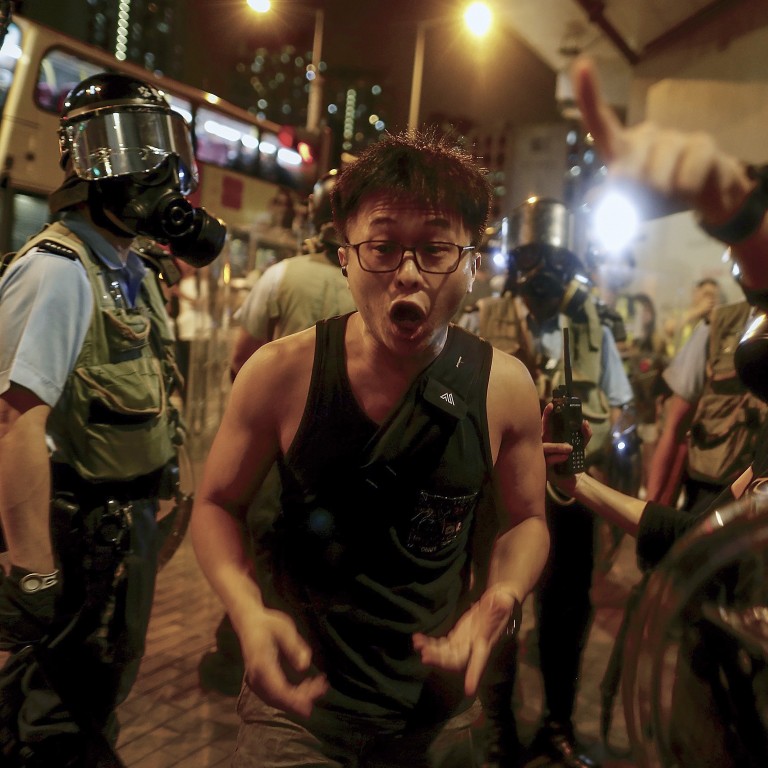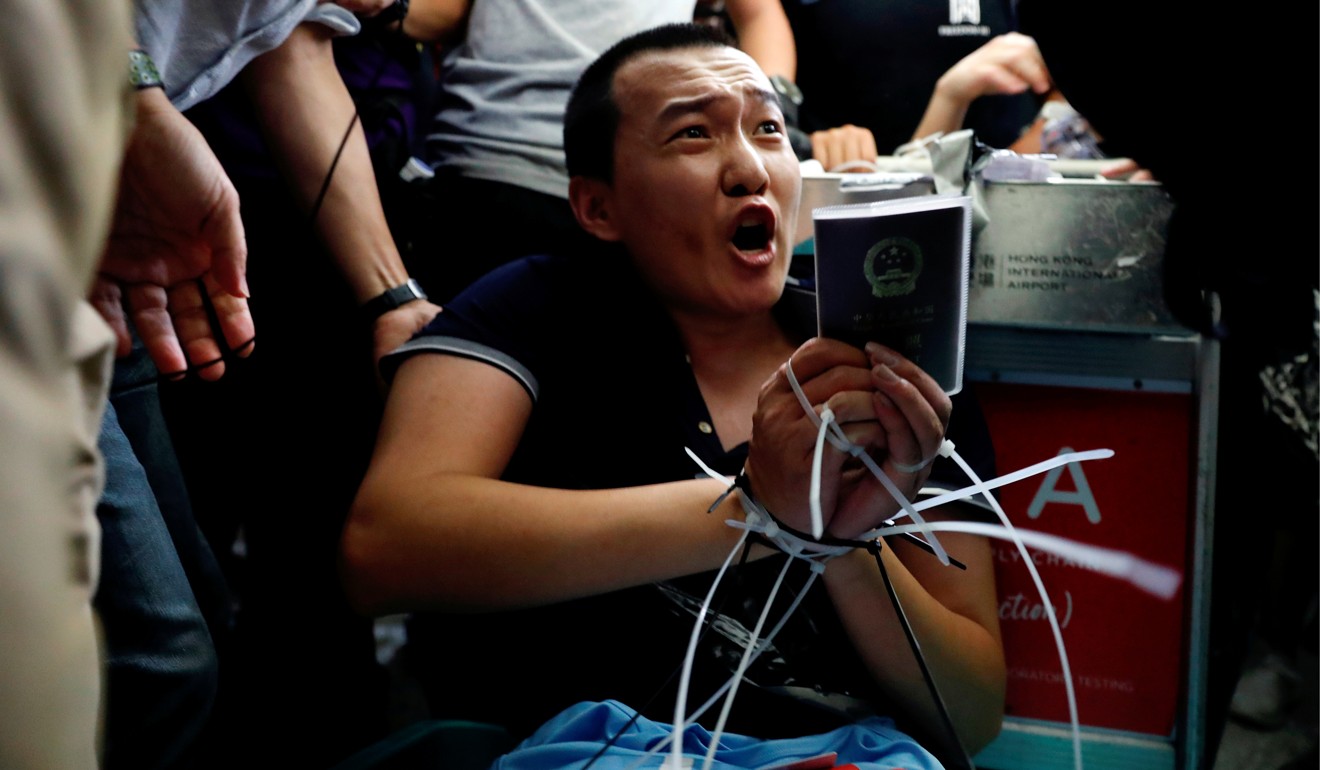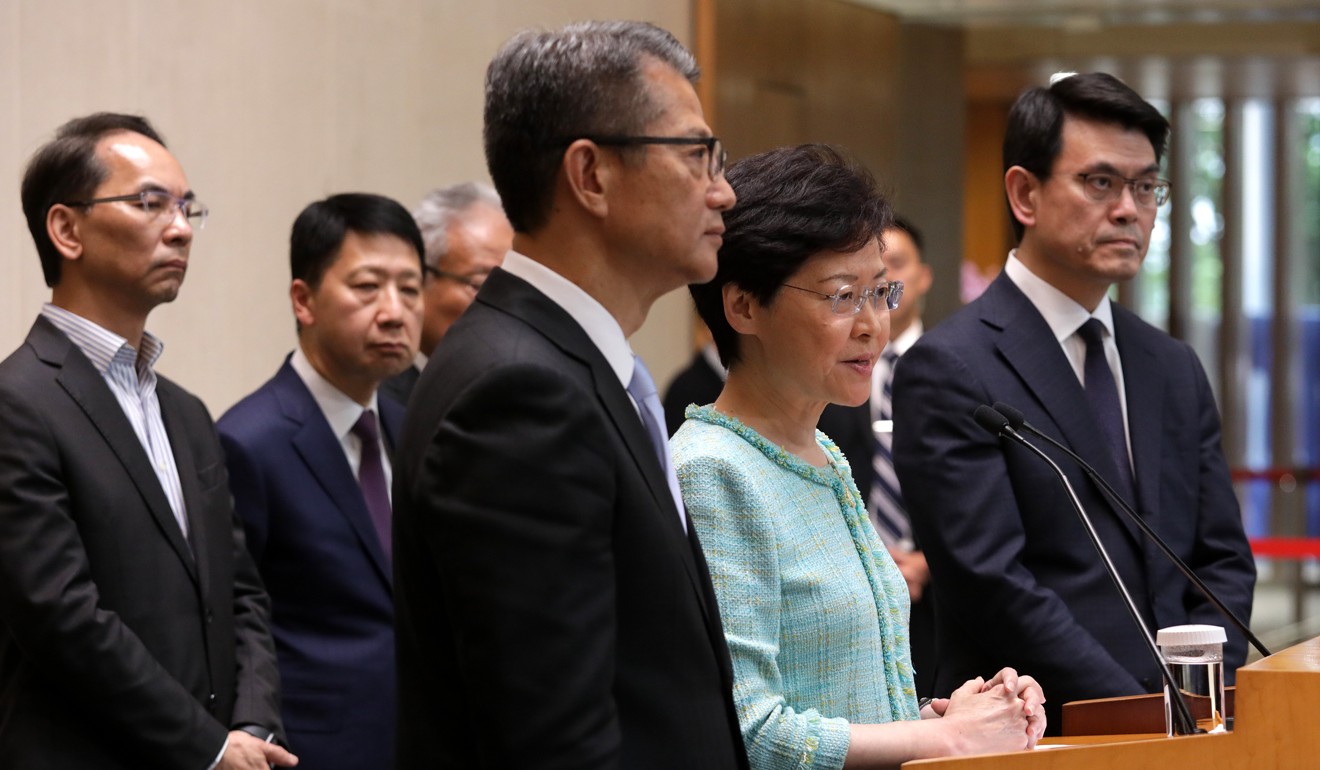
Hong Kong will change for the better – but only when the protest violence comes to an end
- There is no way the Hong Kong and Beijing governments can yield to the violence that threatens the constitutional order
- However, once order is restored, the SAR government will not be able to proceed without making serious reforms
I am constantly being asked how Hong Kong is going to recover and move on from its current crisis – this cycle of increasingly violent demonstrations throughout the city. Frankly, it is a question everyone in Hong Kong, whatever their political views, must now be asking.
The best answer I can give is that the disorder and violence must stop first. Once that happens, I believe the community can engage in some serious – and productive – dialogue about how to solve our serious underlying problems.

My own feeling – partly based on Beijing officials’ very clear announcements – is that everyone in Hong Kong should now accept two things. Whether you like them or not, these are, I believe, basically certain.
Hong Kong must be pragmatic if it is to remain the Pearl of the Orient
The first is that neither the Hong Kong or national government can or will “back down” in some way in the face of violent unrest arising from unauthorised street protests.
The second is that once we have a calmer situation, especially an end to violence on the streets, we are going to see some real changes for the better in Hong Kong.

This first statement – I would call it a certain fact – is a simple response to the demonstrators’ various demands over the last couple of months.
Here’s how Carrie Lam could end the protest chaos in a single speech
More important, the central government has made it clear as a matter of principle that no administration can make concessions in the face of violent street demonstrations. This is a matter of constitutional order, and there cannot be any flexibility on this. Beijing’s officials have made it clear that the disorder is a challenge to “one country, two systems”.
What does this all mean? Simply that disruptive action on the streets will not succeed in accomplishing anything. There is really no purpose to these protests – they just cause chaos and damage.
This brings me to my second statement.
Just as I am sure violence will get us nowhere, I am also sure that when calm returns, Hong Kong will be able to make genuine progress in key areas. Beijing’s official statements leave scope for various approaches to expand dialogue and work on reconciliation – when we have order.
To be blunt, there is no way the local administration can or will go back to business as usual after this
To be blunt, there is no way the local administration can or will go back to business as usual after this.
But we have to start by getting back to law and order on our streets. Further violence and risk of injury is pointless. Once we do that, there is a lot to be gained from peace and stability.
Bernard Chan is convenor of Hong Kong’s Executive Council

